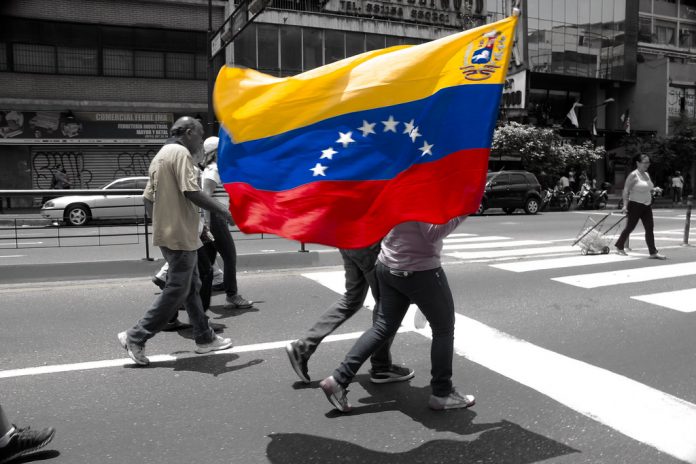Daniel Moreira
Managing editor
In the last year, Venezuela has plummeted into an economic and humanitarian crisis. The country is facing a shortage on water, food and medicine. Thousands of people attempt to leave and move into nearby nations. The Venezuelan president, Nicolas Maduro, has remained in power regardless of the controversies surrounding his actions, as well as the country’s downfall. To make matters more complicated, opposition leader, Juan Guaidó, has declared himself the interim president, leading to a growing series of protests against Maduro and his government. Watching this turmoil from far away, here in the United States, Venezuelan students can only hope that their families will make it through these troubling times.
Tomas Rascati is one of these students. Born in Caracas, the capital of Venezuela, Rascati has been living in the United States since he was a child. Half of his family still lives in Venezuela, and, like millions of others, have been affected by the country’s downfall.
“We communicate through WhatsApp, and they don’t really tell us much of what’s going on,” Rascati said. “They don’t want us to worry, but they are deeply impacted by what’s going on. We have to send them supplies about once a month.”
Rascati explained the contents of the monthly supplies he sends from the U.S. to his family in Venezuela.
“[We send them] the basics,” Rascati said. “We even send them medicines; my grandmother is a diabetic, so we have to send them [medicine] that is not available in Venezuela. [We also send them] rice, beans, fish cans and even coffee.”
One of the major problems in Venezuela has been a shortage of supplies. Many people have been travelling to nearby nations like Colombia and Brazil in search of food and water. According to the Washington Post, doctors in Venezuela have reported an increase in cases of diarrhea, typhoid and hepatitis A, with hospitals also having a water and power shortage.
“It’s sad,” Rascati said. “I think living in the United States, we take a lot for granted here. I always think about my [family], about their well-being, and it’s sad. I wish they could come here, but it’s more complicated than that.”
However, with the rise of Guaidó and a constant growth in the opposition, Rascati sees a shimmer of hope in the country’s nearby future.
“There’s an optimism in being what Venezuela was in the past,” Rascati said. “I don’t want to compare our situation to what’s going on in Syria or Yemen, but I hope it doesn’t end up like that. I hope that Guaidó can step it up and overthrow Maduro’s regime. That’s what majority of us are hoping for.”
Political Science professor, Tracy Bedell, commented on what she believes the future for Venezuela will be, and how could Americans be affected by the possible outcome.
“At this point, perhaps, the time for talk is over,” Bedell said. “Maduro has not responded to the people. He has ignored their suffering and their cries. I would not be opposed to the use of troops to establish a stable government. I am not advocating the spread of democracy, but the installation of a stable government that is responsive to the needs of the people. They have suffered needlessly for too long.”
Bedell also commented on the lack of care from international organizations.
“The lack of response from the United Nations, the United States and other organizations has been unimaginable,” Bedell said. “Their silence has been deafening.”
Even though so many Venezuelans are fleeing to nearby nations, enough to the point of creating a migrant crisis in South America as well as a rise in xenophobia in the region, Rascati does not believe that his family would try to flee their country.
“From news sources, I know there’s a lot of migrating over to Colombia, Ecuador, Peru, Bolivia, Brazil, but, in my own family, I don’t really see them going to any of those places,” Rascati said. “They won’t even come here. We could grant them a visa, but they chose not to come here. I guess they are trying to ‘stick it out.’”
For students like Rascati, the old Latin American saying, “La esperanza es lo último que se pierde” (hope is the last one to go), is more than applicable to Venezuelans both at home and abroad.






















